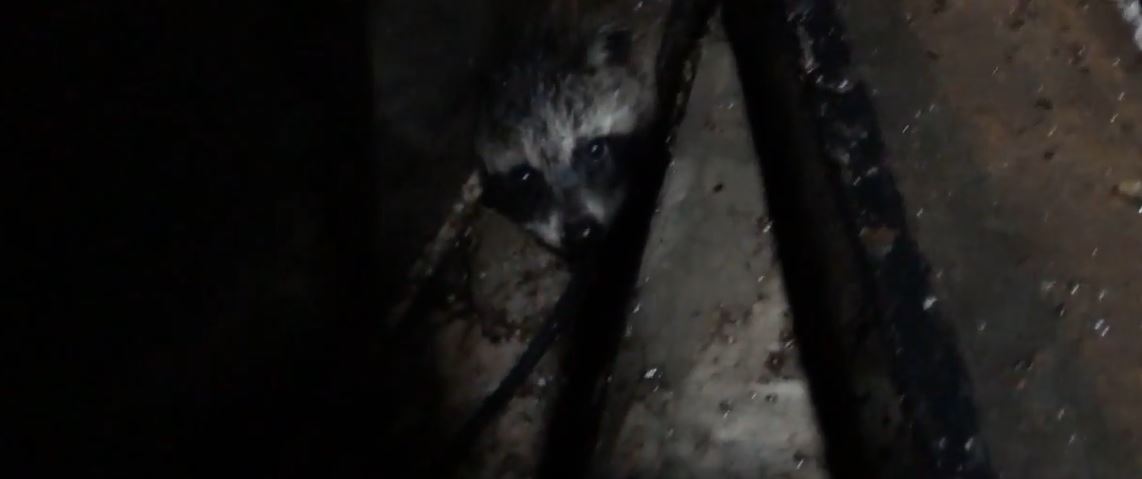Raccoon Prevention Tips: How To Keep Raccoons Away

Raccoons are known for creating a mess when they enter your home, or even just decide to create a den somewhere on your property. They will eat garbage or pet food, tip over garbage cans, or even cause damage to your home if they choose to live inside your attic. Raccoons are one of the harder animals to keep off your property, but it is possible. To make matter easier, however, it helps to take preventative measures and discourage the raccoons from ever stepping foot on your property in the first place.
Home Repairs
Raccoons want to find a protected space where they can set up a den and in the wild, this would be a tree or an abandoned burrow. When they live in urban areas, however, they will commonly take advantage of manmade structures, looking for an entry point that gets them into your attic or a nice porch to live underneath. The best way to stop raccoons from getting into your home or other buildings is to make sure that there are no openings or other potential access points. In most cases, this means walking around the home and looking for weak areas, cracks, or holes. Simply taking the time to repair these issues will prevent raccoons from entering your home. While it won't guarantee they stay off your land as well, they are more likely to do so if they can't find shelter.
Keep It Clean
To further discourage raccoons from seeing your property as a viable home, make sure to get rid of all sources of food or water whenever possible. While you obviously won't be able to get rid of a pond right on your property, you can avoid leaving out your pet's water bowl. Minimizing the food sources for this wild animal tends to be easier, although raccoons have been known to eat nearly everything. Keeping your property clean involves keeping pet food inside and making sure that the lids on your garbage cans are strongly secured. Ideally, you should keep your garbage in the garage, but if that isn't option, a raccoon-proof lid may be good enough. If you have a bird feeder on your property, consider temporarily getting rid of it until your raccoon problem is over. At the very least, make it a point to clean up the fallen birdseed about every day.
Fences
Depending on how much effort you are willing to put into preventing raccoons from entering your property, a fence may help. Keep in mind that raccoons are great diggers and climbers, meaning that you will have to bury the fencing underneath the ground at least several inches and make sure it is fairly tall, with no trees or other similar items nearby. Raccoons are known to climb trees, so a fence won't work if there is a tree right next to it. Instead of relying on fences to keep raccoons out of your property as a whole, they work best at preventing entry to a particular area. One example would be putting a fence in place around the underside of your porch so raccoons can't make this area into a den.
Store Bought Repellents
To help deter raccoons from entering your home or property, you can also try a commercial repellent. These come in several forms, including liquids and granules. These claim to use chemicals and scents that raccoons don't like, but most of the time they aren't very effective. You will need to apply them in larger quantities to get results and in some cases, they may contain potentially harmful chemicals that pose a danger to your family or can enter the water supply. Some repellents will also claim to work by using predator urine or similar items that will scare away raccoons, but they will have the same issues as other store bought repellents.
Light And Sound
Many companies also sell raccoon deterrents in the form of electronic devices that emit sound or light when a raccoon comes near. They are triggered by motion sensors and will sometimes effectively scare away the raccoons. The issue with these, however, is that despite their claims, it is possible for humans to hear many of the sound machines and the raccoons may still ignore them. Any similar object that emits light or water when triggered will also cause an annoyance to your family, and the raccoons may still figure out how to get around them.
Natural Remedies
While the single best method of preventing raccoons is to take away all items that will attract them, such as food, water, and shelter, natural remedies will sometimes work. These are repellents that you can make yourself, but they come with some of the same issues as store bought ones. You will need to reapply them frequently and they may not be effective. On the bright side, you won't be wasting money on the items and they aren't dangerous. Some homemade repellents include epsom salts, moth balls, vinegar, and ammonia. If you have these items on hand, you can give them a try, but don't rely solely on this method of preventing raccoons.
Read the How to get rid of raccoons page for helpful information and to learn more about Raccoon Prevention Tips: How To Keep Raccoons Away

